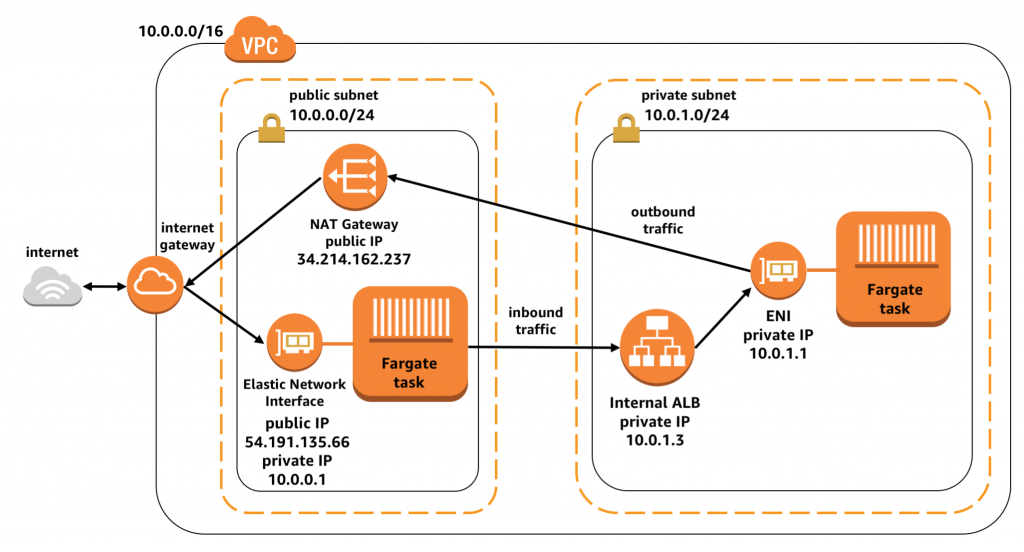AWS Compute Blog
Category: AWS Fargate
Migrating Your Amazon ECS Containers to AWS Fargate
AWS Fargate is a new compute engine that works with Amazon Elastic Container Service (ECS) to run containers without having to manage servers or clusters. What does this mean? With Fargate, you no longer need to provision or manage a single virtual machine; you can just create tasks and run them directly! Fargate uses the same API actions as ECS, […]
Task Networking in AWS Fargate
AWS Fargate is a new compute engine for containers that allows you to focus on running your application without needing to provision, monitor, or manage the underlying compute infrastructure. You package your application into a Docker container that you can then launch using your container orchestration tool of choice. Fargate allows you to use containers […]
Building Blocks of Amazon ECS
So, what’s Amazon Elastic Container Service (ECS)? ECS is a managed service for running containers on AWS, designed to make it easy to run applications in the cloud without worrying about configuring the environment for your code to run in. Using ECS, you can easily deploy containers to host a simple website or run complex […]
Set Up a Continuous Delivery Pipeline for Containers Using AWS CodePipeline and Amazon ECS
This post contributed by Abby Fuller, AWS Senior Technical Evangelist Last week, AWS announced support for Amazon Elastic Container Service (ECS) targets (including AWS Fargate) in AWS CodePipeline. This support makes it easier to create a continuous delivery pipeline for container-based applications and microservices. Building and deploying containerized services manually is slow and prone to errors. Continuous delivery […]
The re:Invent 2017 Containers After-party Guide
Feeling uncontainable? re:Invent 2017 might be over, but the containers party doesn’t have to stop. Here are some ways you can keep learning about containers on AWS. Learn about containers in Austin and New York Come join AWS this week at KubeCon in Austin, Texas! We’ll be sharing best practices for running Kubernetes on AWS […]




